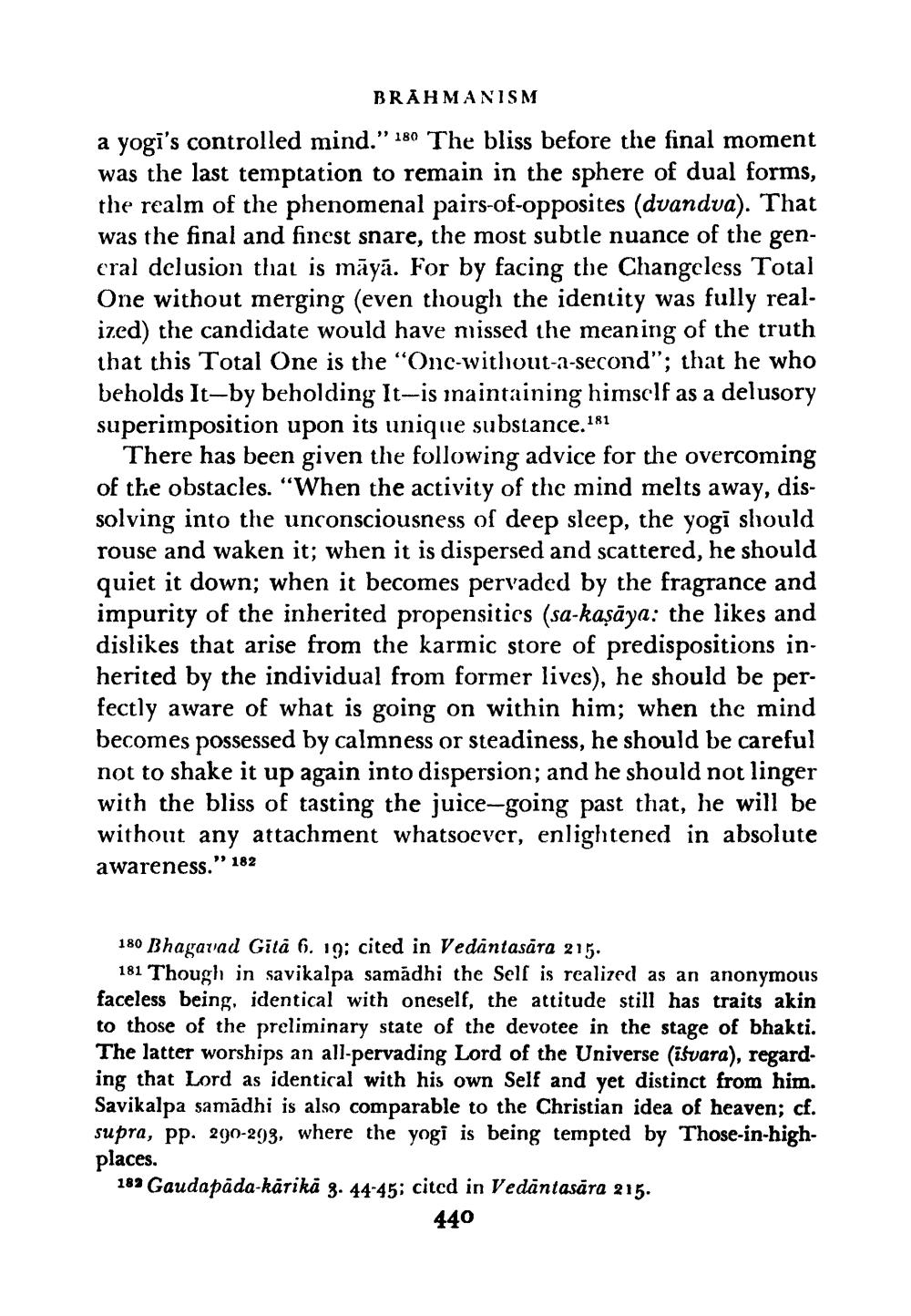________________
BRAHMANISM a yogi's controlled mind.” 180 The bliss before the final moment was the last temptation to remain in the sphere of dual forms, the realm of the phenomenal pairs-of-opposites (dvandva). That was the final and finest snare, the most subtle nuance of the gencral delusion that is māyā. For by facing the Changcless Total One without merging (even though the identity was fully realized) the candidate would have niissed the meaning of the truth that this Total One is the “Onc-without-a-second"; that he who beholds It-by beholding It-is inaintaining himself as a delusory superimposition upon its unique substance.181
There has been given the following advice for the overcoming of the obstacles. "When the activity of the mind melts away, dissolving into the unconsciousness of deep sleep, the yogi should rouse and waken it; when it is dispersed and scattered, he should quiet it down; when it becomes pervaded by the fragrance and impurity of the inherited propensitics (sa-kaṣāya: the likes and dislikes that arise from the karmic store of predispositions inherited by the individual from former lives), he should be perfectly aware of what is going on within him; when the mind becomes possessed by calmness or steadiness, he should be careful not to shake it up again into dispersion; and he should not linger with the bliss of tasting the juice-going past that, he will be without any attachment whatsoever, enlightened in absolute awareness.” 182
180 Bhagavad Gita 6. 19; cited in Vedantasära 215.
181 Though in savikalpa samadhi the Sell is realized as an anonymous faceless being, identical with oneself, the attitude still has traits akin to those of the preliminary state of the devotee in the stage of bhakti. The latter worships an all-pervading Lord of the Universe (isvara), regarding that Lord as identical with his own Self and yet distinct from him. Savikalpa samadhi is also comparable to the Christian idea of heaven; cf. supra, pp. 290-293, where the yogi is being tempted by Those-in-highplaces.
189 Gaudapāda-kärikä g. 44-45; cited in Vedāntasāra 215.
440




